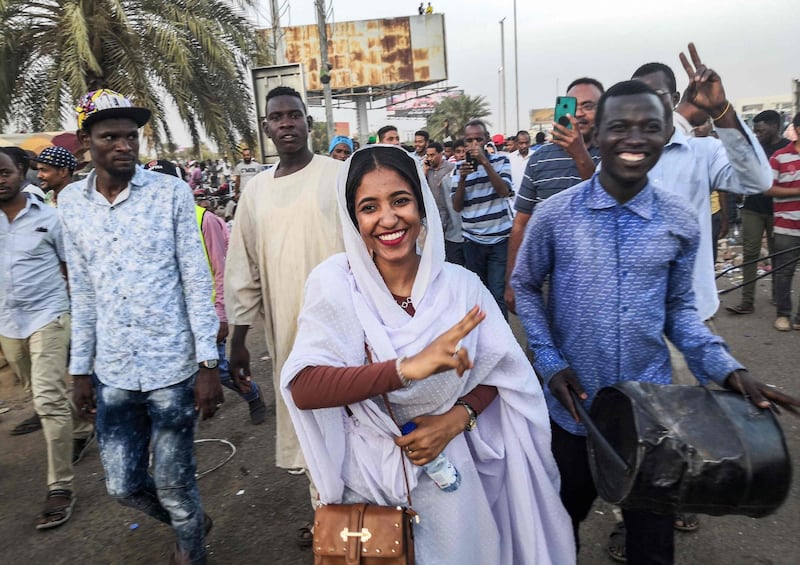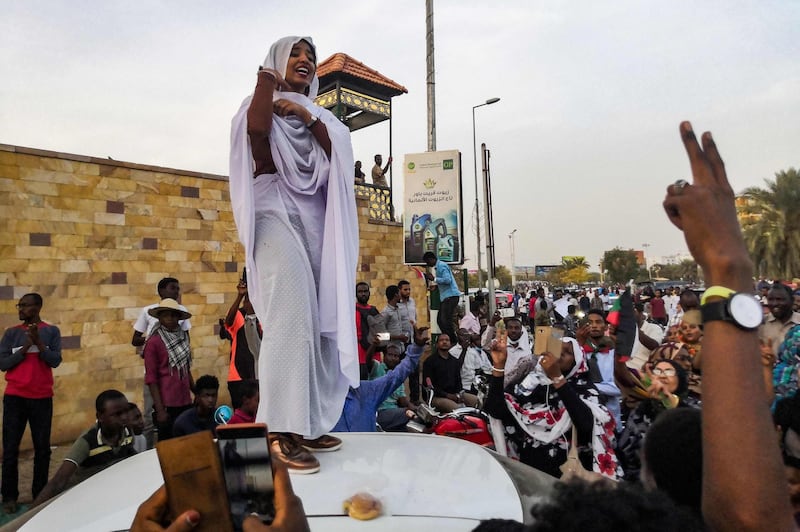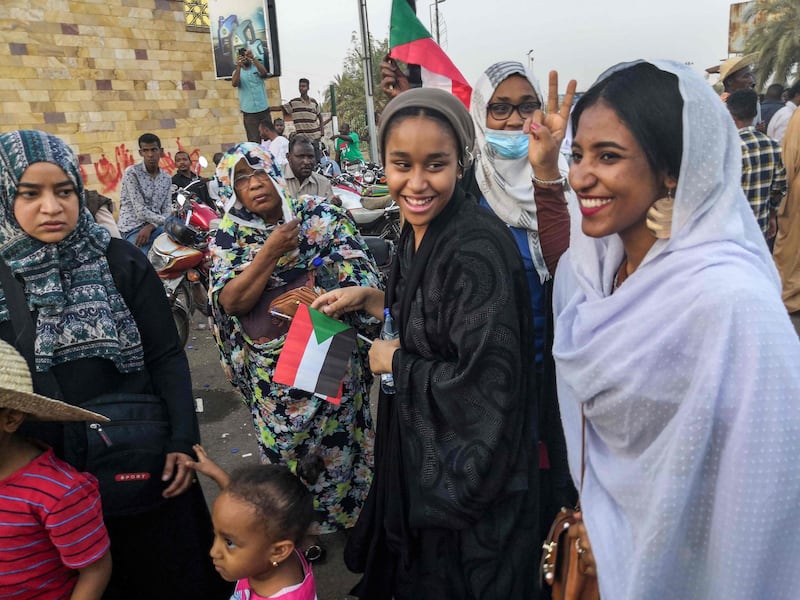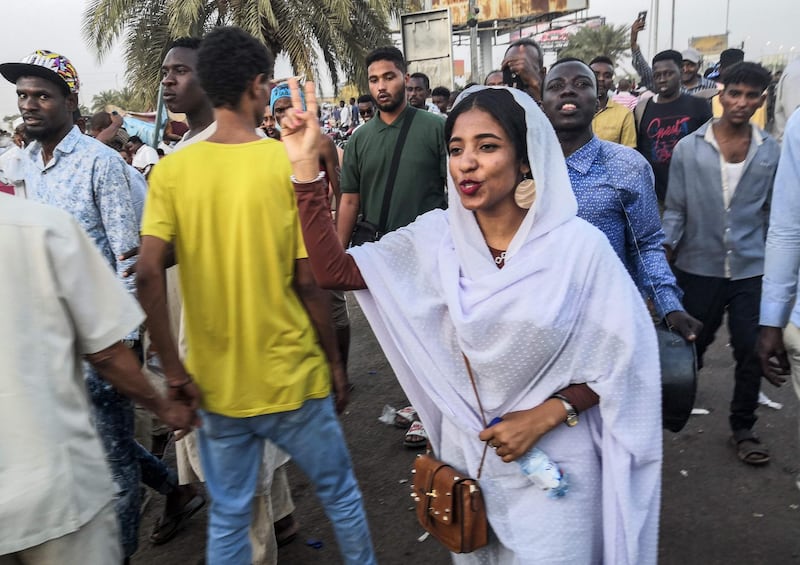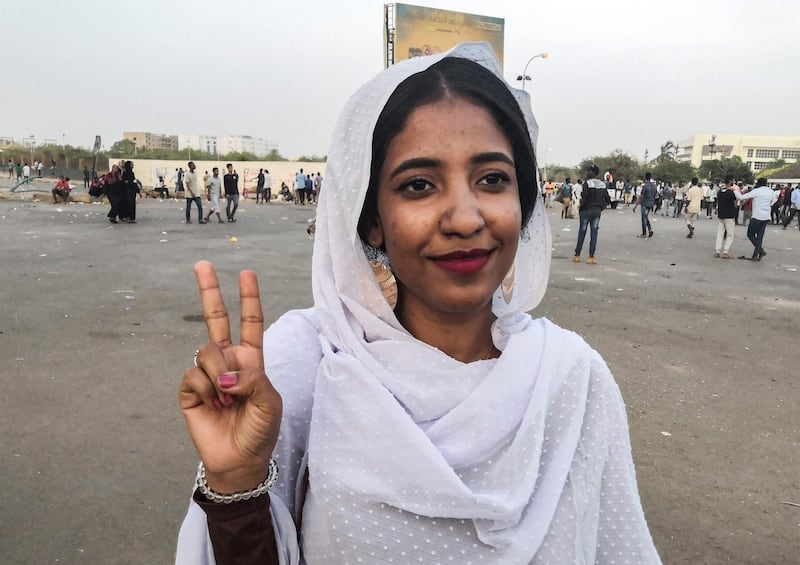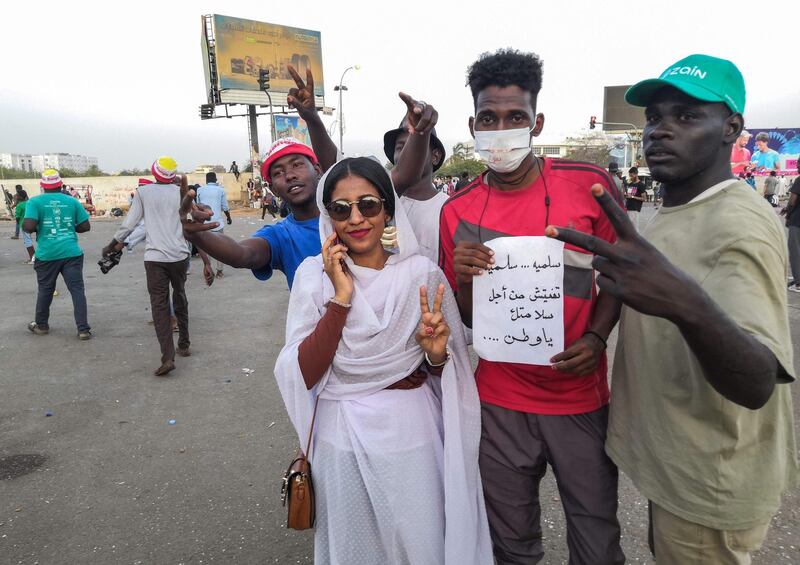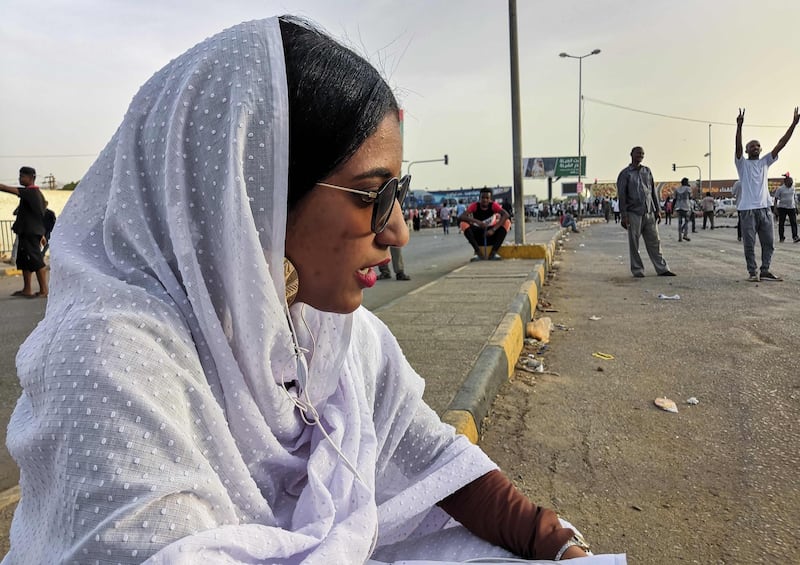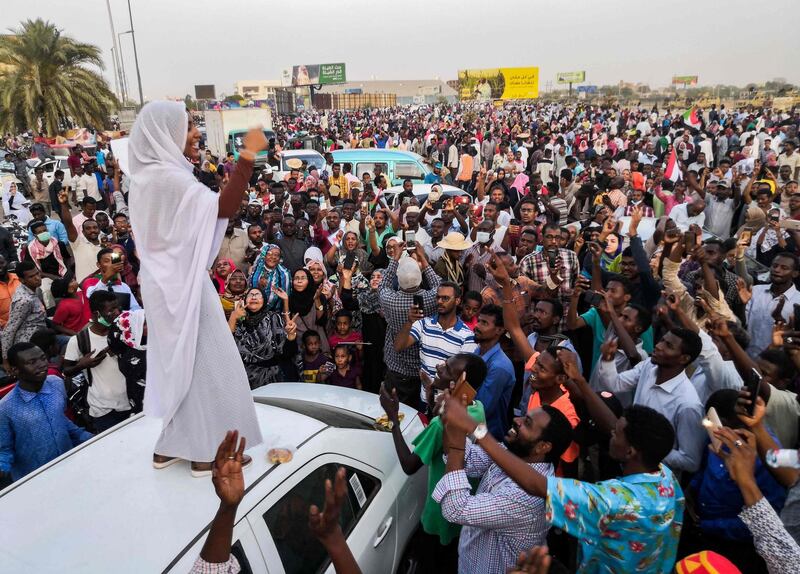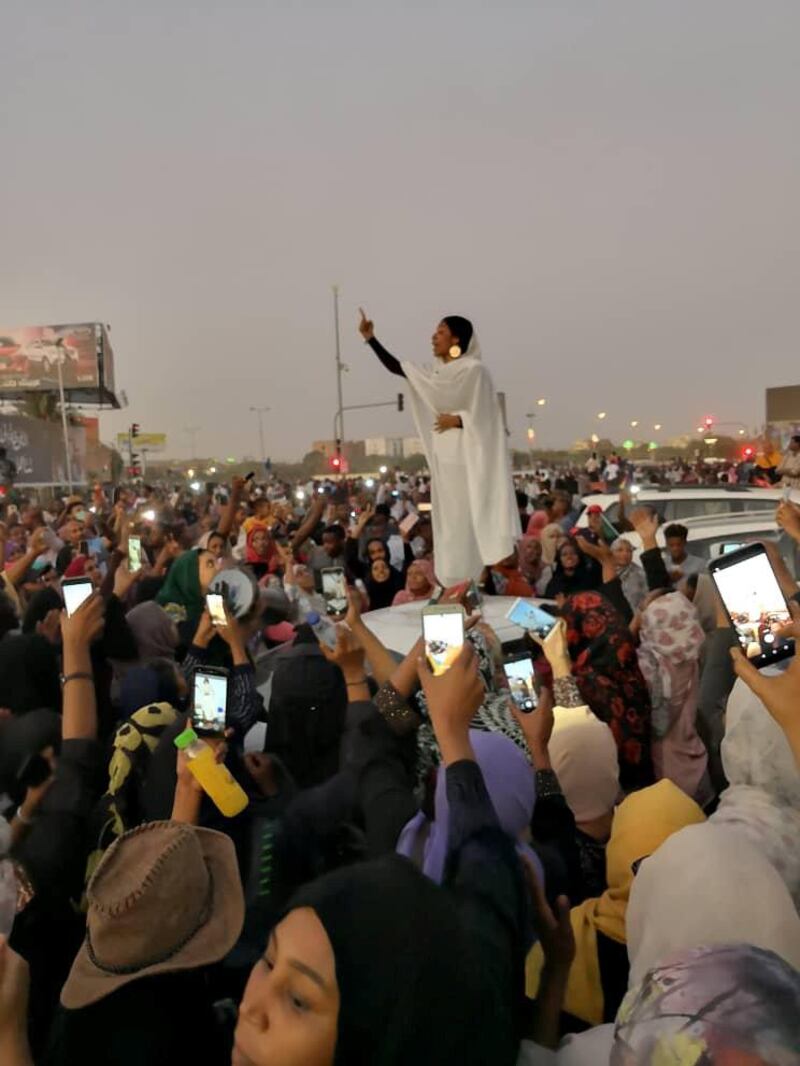In a traditional white Sudanese gown and moon-shaped golden earrings, Alaa Saleh stood atop the roof of a car with her right arm raised and a finger pointing skyward. Hundreds of her fellow protesters surrounded her, their phones held high to record her.
The image of the 22-year-old engineering student from Khartoum, Sudan's capital, was taken on Monday by another woman, Lana Haroun. It did not take long for it to go viral on social media and, in many ways, to become the defining image of nearly four months of street protests against the authoritarian rule of Islamist president Omar Al Bashir, demonstrations in which women have played a significant role.
Taken by me@lana_hago#8aprile pic.twitter.com/o7pDUsQg84
— Lana H. Haroun (@lana_hago) April 8, 2019
A video shared online shows Ms Saleh performing a graceful dance, a mere hint of a sway to accompany her chanting, which gave heart to the hundreds of thousands of protesters staging a sit-in outside the headquarters of the armed forces in Khartoum in a bid to persuade the generals to remove Mr Bashir, in power since he led a 1989 military coup backed by Islamists.
To the refrain of "revolution" shouted by the crowd, the slender Ms Saleh chanted: "They burned us in the name of religion, killed us in the name of religion, jailed us in the name of religion."
What was so striking about her image, as well as the video, is the confidence Ms Saleh appears to have in the justice of her cause and how brave she is to have assumed centre stage at a protest undoubtedly infiltrated by informants working for a government whose critics view as among the region's most repressive.
The image, which has already inspired artists who shared their renditions online, drew analogies with America's Statue of Liberty, an angel, and the ancient Nubian Sudanese queens known as kandaka who live on in Sudanese folklore as women who accomplished and sacrificed so much for their country.
Even her outfit captured the imagination.
Her tob, or gown, wrote activist Hind Makki, is a "callback" to the Sudanese women of the 1960s, 1970s and 1980s who took to the streets to demand the end of dictatorships.
"A woman's place is in the revolution," someone tweeted about the image, playing on an old saying popular in the Arab world's conservative societies that women are better off staying home to raise children and look after their spouses. In another, the billboard behind Ms Saleh was photoshopped with words that play on another patriarchal saying equating women's voice with disgrace: "A woman's voice is a revolution."
The Nubian Queen that woke the world.
— Edge of Arabia (@edgeofarabia) April 10, 2019
Illustration by @CrosswayUK alumna #NourFlayhan of Ala Asalah as photographed by Lana Haroun speaking out against the Sudanese government for killing people in the name of religion.
#CrosswayAlumni #NourieIllustrations #LanaHaroun pic.twitter.com/PbNbB5ud4i
The celebration of Ms Saleh's courage and her appearance may also have something to do with the struggle many Sudanese women have had to endure under Mr Bashir, whose government has sought to sideline or exclude from the public sphere empowered professional women active in politics or trade unions.
Under a widely reviled Bashir-era "public order" law, for example, police can detain any woman whose public dress or conduct they deem religiously inappropriate. Hundreds of women have fallen victim to that law, which, for example, prohibits wearing pants in public. Offenders are flogged or fined. Many women have often defied the law.
"That image means so much to me," said Sara Abdul-Jaleel, spokeswoman for the Association of Professional Unions, one of the driving forces behind the protests. "I commend her for her courage. She has exposed herself to great dangers and she will be pursued by authorities."
Authorities have jailed hundreds of women since the protests began on December 19. "I have heard first-hand stories from women who have been detained for weeks and who spoke of ill treatment, harassment, torture by sleep deprivation and the denial of medical care," said Ms Abdul-Jaleel.
Women have assumed a significant role in the anti-Bashir protests, in many ways mirroring their significant participation in similar uprisings against dictatorships in 1964 and in 1985. Beside the hundreds detained or injured in clashes, at least two women have died in the protests.
In video clips and images shared on social media in recent days, women appear to play a key role in the positive and optimistic atmosphere at the sit-in outside the military headquarters in Khartoum. Protesters sing old revolutionary and patriotic songs, play music and chant "Just fall," the slogan that morphed into a hashtag and which appears on signs, banners and walls alongside the equally popular "freedom, peace and justice."
But the festive atmosphere belies the danger to protesters. Security forces have killed at least 22 people since the sit-in began over the weekend. These fatalities are on top of at least 80 killed since the protests began in December, according to figures compiled by activist groups.
Sudan's unrest initially began over price hikes and shortages of basic commodities in December but soon shifted to calls for Mr Bashir to step down. For his part, the 75-year-old Bashir, already among the longest serving leaders in the region, insists that change will only come through the ballot box. A presidential election is due next year.
In his 29-years in office, Mr Bashir has failed to bring peace or prosperity to the large, ethnically and religiously diverse nation. He was indicted by the International Criminal Court in 2010 for genocide in the western Darfur region, where militias loyal to him brutally suppressed an insurgency. The next year, the mostly animist and Christian south of the country seceded, taking with it most of the country's oil wealth and plunging northern Sudan into one of its worst ever economic crisis.
